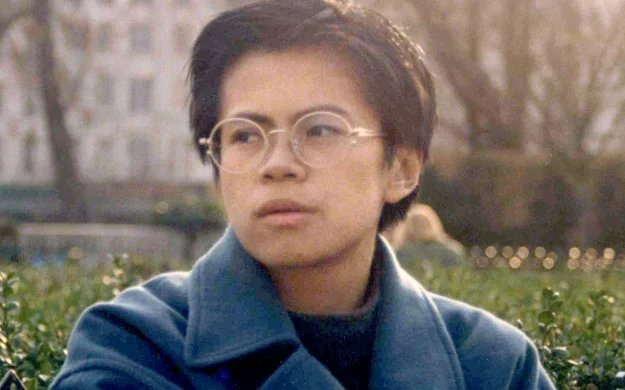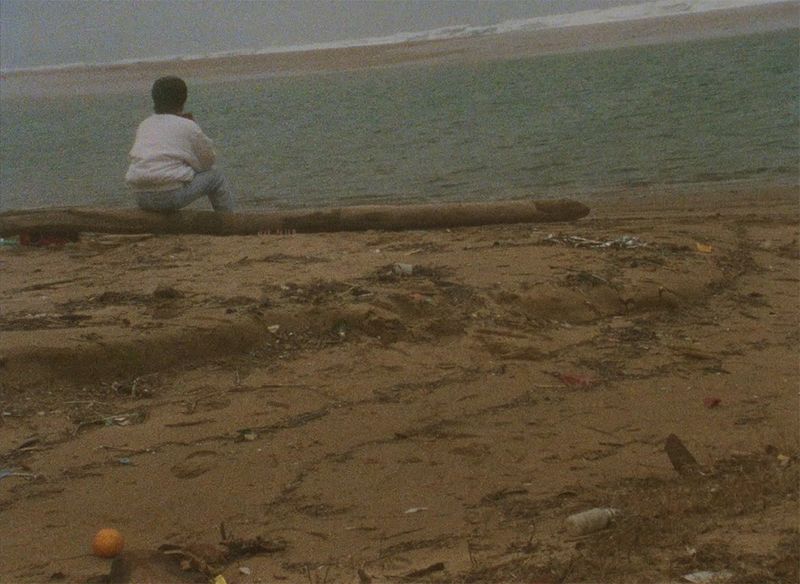Your currently viewing RAW Contemporary | View RAW Modern

Published in 1994, Notes of a Crocodile, is Taiwanese writer and artist Qiu Miaojin’s (邱妙津, 1969-1995) first novel, a literary canon in the country’s queer cultural history. Later translated to English by Bonnie Huie in 2017, the book was published by the New York Review Books as part of their NYRB Classics series and widely circulated in global literary circles. What is perhaps less known, however, is Qiu’s overarching influence on Sinophone literature and national queer history that “gave voice to a generation of Taiwanese lesbians.” The geopolitical background of Qiu’s work is interesting to consider, especially given Taiwan’s current position as “a leader of gay rights” in the Asian context, with the nation’s queer activism and political developments growing in increasing international visibility over the last decade. 3 Great emphasis is placed on sociopolitical dimensions of Taiwan’s queer movement today, most notably the Constitutional Court’s landmark decision to legalize same-sex marriage on May 24, 2017, making Taiwan the first country in Asia to do so. The roots of Taiwanese queer mobilization, however, can be traced to the early 1990s, coinciding with the lifting of Martial Law in 1987. This year marks a moment of historical rupture, characterized by a democratization of the island and importantly, a deregulation of cultural and political expression. This major political shift allowed for a fundamental reorganization of societies in varied social, cultural, and legal spheres through its exposure to transnational circuits of knowledge production, prompting new liberal engagements with civil rights politics in “environmental, labour, feminist, indigenous, and gay and lesbian movements.”
The new literary movement is a visible space of such transformation, as writers discuss emerging liberal ideals while adopting Western postmodernist aesthetic forms in writing. The same coupling of ideology and literary form is one that also shapes the foundations of queer discourse in Taiwan. As transnational discourse on gender and sexuality makes its way into intelligentsia circles in the 1990s, it sparks conversations on identity and understandings of queerness. Unlike the West, where queer movements were “born in the street” out of political necessity and survival, Taiwanese queer politics is most prominently situated in intellectual circles, within university spheres, and circulated through print culture, in literature as a form of cultural production. It is in this very cultural space that Qiu’s art can be situated and viewed.

The Politics of Queer Visibility
Queer literature, in its depiction of a largely hidden world, serves as a form of intimate expression for queer history. There exists, however, a tension between the intimacy embedded in the form of queer literature and the publicness of its mainstream distribution in the Taiwanese context. The dissonance between a niche queer content and the wider literary reach of the medium can perhaps be reconciled by the mediating fictionality of the novel form—a constructed representation of the marginal queer experience. Qiu Miaojin, too, can be situated among prolific literati of the 1990s. Her writing, however, intervenes in its raw depiction of the lesbian existence through intimate and sharp writing; Qiu’s narrative rawness is derived from an examination of queerness in Taiwan, but more specifically, of her personal queer vulnerability.
A significant moment of literary intervention can be situated in Qiu’s Notes of a Crocodile. From a literary standpoint, the piece was transformative in its depiction of Taiwanese lesbian writing. The novel makes bold declarations towards intimate expressions of queer love and desire. The narrator, Lazi, asserts, “I am a woman who loves women” marking the first moment of explicit queer identification in the Taiwanese novel form. The statement, along with the character’s extensive self-reflexivity in the text, contributes to an “opening up [of] a literary territory for self-consciousness of lesbian lust and mourning for love” that was not formerly present in the Taiwanese queer literature scene. The cultural significance of the novel is also evident in the Taiwanese lexicon that adopted “Lazi” (拉子) and its adaption “Lala” (拉拉) as slang for “lesbian”; in this way, Qiu quite literally expanded constructions of queer language and knowledge.
The role of the personal queer experience is also prominent in Qiu’s writing. The inextricable tie between the author’s semi-autobiographical voice, exposing a queer interiority of desire and depression, and private life is perhaps most definitively solidified at the event of her suicide in Paris, June 1995. It becomes “impossible not to read the novel […] in light of what the text might disclose about the life and personality of its author”; one is also prompted to consider how “the common reading of Qiu’s writing as ‘self portrait’ or ‘almost-autobiography’ is likely prompted by the style of the writing itself as much as by the fascination of the reading public with circumstances of Qiu’s death.” The notion of the self-portrait is derived from the prevalent confessional form in Qiu’s novels, most closely associated with the posthumous publication of Last Words of Montmartre (1996), often contextualized by Qiu’s own suicide upon completion of the piece. The book is structured as a series of twenty letters addressed to the narrator, Zoë’s lovers. The letters reveal the narrator’s intimate expressions of love and desire, self-reflexive growth and stagnation, episodes of depression and heartbreak, fears and aspirations.
The implications of Qiu’s narrative vulnerability are manifold as it presents the first autobiographically visible account of queerness that can be read parallel to the sociopolitical contexts of Taiwan, revealing wider national frames of understanding. A New York Review Books review by Monica Carter draws out the significance of Qiu’s work stating, “Both of Qiu’s novels, as Qiu herself, are treasures and guides for the Taiwanese queer community.” In Qiu’s autobiographical intervention, she ruptures the concealment of queer existence in Taiwan, contributing to not only the local literary scene but also the construction of a larger national history of sexuality.
Beyond a National Literary Legacy
A discussion of Qiu’s work extends beyond both the literary scope and the national scale when considering the influence of her artistic legacy. For instance, Ghost Carnival (鬼的狂歡), based on Qiu’s short story of the same name, was made in 1991, marking her directorial debut. While largely known among the Taiwanese literary and art scene, very few people had actually seen the film.

The film finally had its international premiere at the House of World Cultures (HKW) in Berlin, 2022; it was also recently shown at an ICA screening (https://www.ica.art/films/tmtkbp-outrage-ghost-carnival), speaking to an international interest in Qiu’s artistry. As the introduction to the film reads: The spectre invoked in the film’s title is Siping, a young woman who had killed herself after experiencing sibling rape; she haunts her brother Jinyang’s memory in the days approaching his twentieth birthday. As critic Ruby Hseih I-Hsuan has noted. After Qiu’s death, her only film work seemed to sink into the deep dark ocean, disappearing into cold silence; now, some thirty years after its making, it will be presented to UK audiences for the first time.
Qiu’s life and work continues to inspire other artists today, as they explore the vulnerabilities and emotional intimacies of the queer experience. Double Witness (2020), for instance, is a series of 20 video letters by artist Meng-Yu Yan filmed during their three-month residency at the Cité Internationale des Arts in 2019. The videos follow the artist throughout Paris as they retrace Qiu’s final steps.

The artist’s process and practice is elucidated on their website, explaining: In this work the artist becomes a medium in both a psychic and artistic sense. Yan’s videos respond to Qiu’s letters through geographic and temporal connections. They reveal how the artist engages in a literary séance with the author, reading and retracing Qiu’s novel on the exact dates she details. From this Yan creates a video diary of dérives, directions, wanderings. The artist becomes Qiu’s double: mirroring her in age, ethnicity, sexuality, relationships, time, place and gender identity. It is an act of haunting and an attempt to re- animate the steps Qiu took throughout Paris in her final months. During the course of this intensive endurance performance the artist experienced a blurring of boundaries between their own life and that of Qiu. The artist’s own relationship of three years broke down and feelings of heartbreak, guilt, betrayal, passion, and love begin to mirror those expressed in the novel. The works were first exhibited at Dominik Mersch Gallery Online in 2020 due to the pandemic. Subsequently, the works were exhibited at the Australian National University’s Australian Centre on China in the World in an exhibition called ‘Double Witness’ curated by Professor Ari Heinrich and Dr. Lindsay Kelley in 2023. The artist also performed a reading of an excerpt of Qiu Miaojin’s ‘Last Words From Montmartre’ translated to English by Professor Heinrich at the event ‘Pathetic Happening’. It took place in May 2023 at St. Mark’s Church in the Bowery in New York and was curated by Eileen Myles and Tom Cole.
The role of queer visibility in arts and culture is clearly one of great significance. Qiu’s personal and artistic legacy have left their mark on not only the queer literary scene but the larger queer community and culture in Taiwan; similarly, her work continues to inspire artists today, as queer expression and experience is translated and translated through the artistic medium globally.